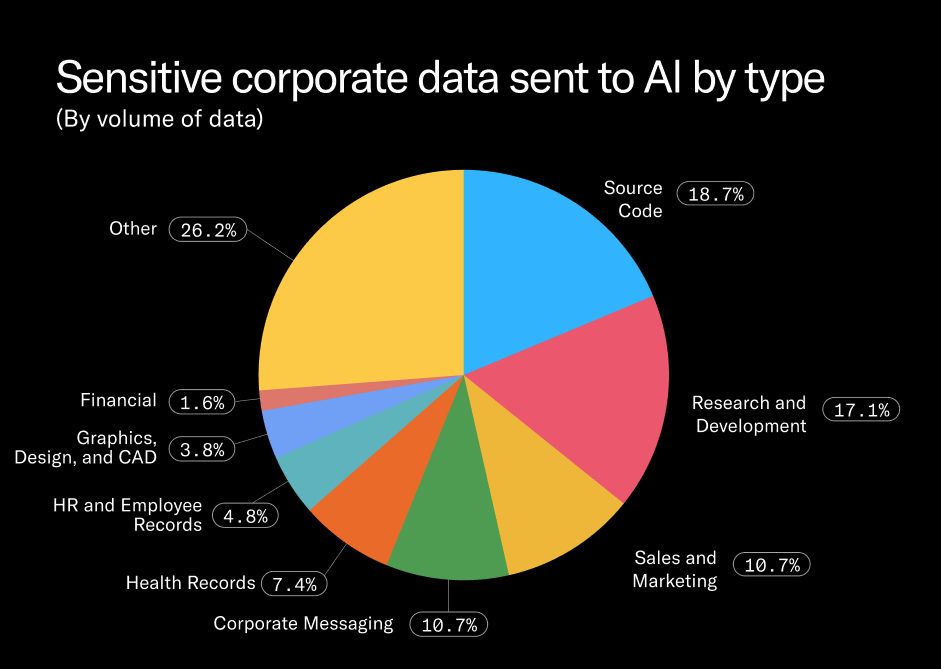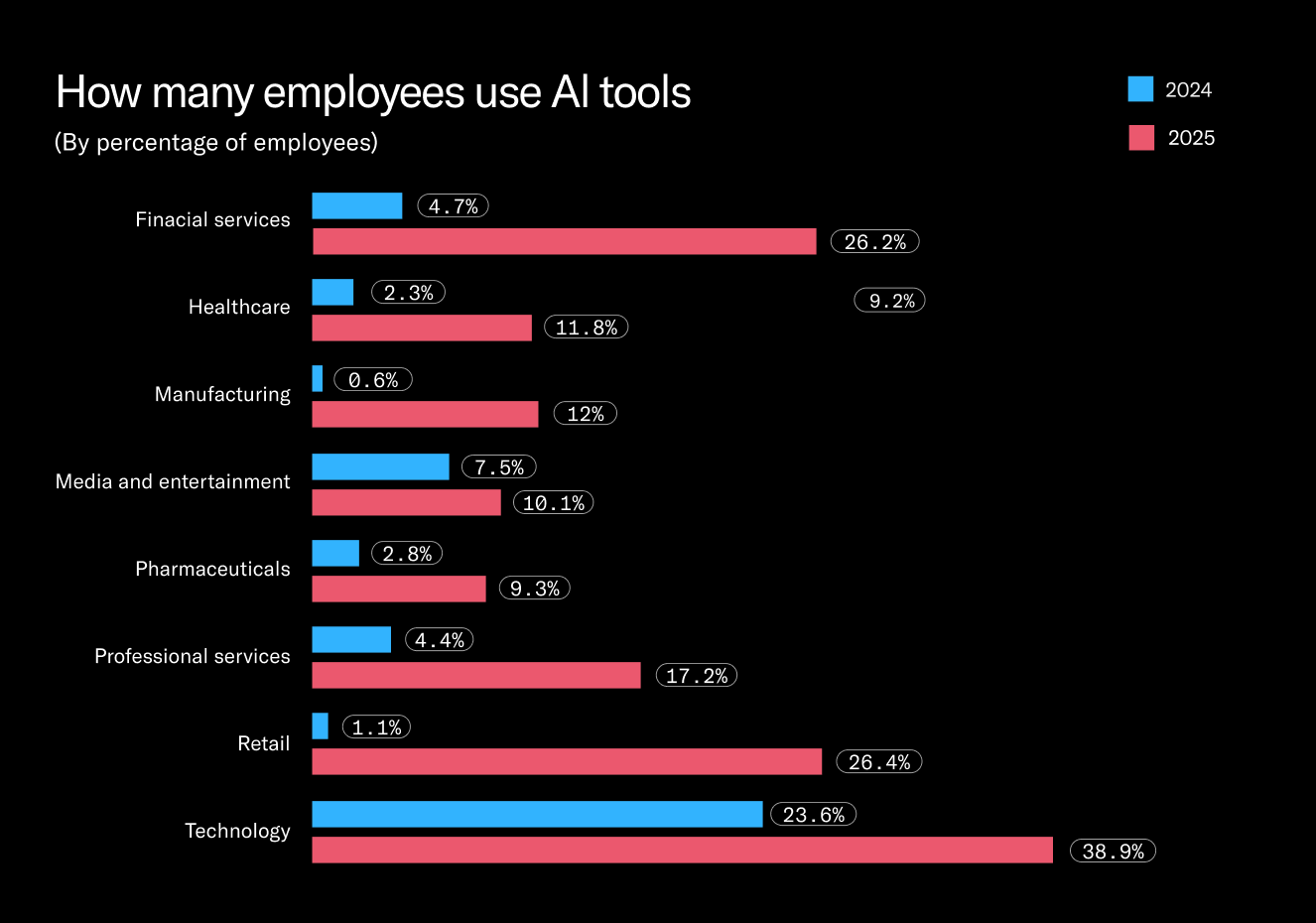
HR, employee records accounted for 4.8% of all sensitive data sent to AI, report finds

A growing amount of sensitive data is going to AI tools as the use of the technology becomes increasingly widespread across organisations, according to a new report.
Findings from Cyberhaven's 2025 AI Adoption and Risk Report revealed that 34.8% of all corporate data that employees input into AI tools is classified as sensitive. This is a substantial increase from the 27.4% a year ago, and three times higher than the 10.7% in 2023.
The most common sensitive data that employees input into AI tools is source code, which accounts for 18.7% of all data sent to AI tools at work.
Another form of sensitive data sent to AI is research and development materials (17.1%), marketing data (10.7%), and even corporate messaging (10.7%). HR and employee records also accounted for 4.8% of all sensitive data input into AI, according to the report.

The findings come in the wake of widespread use of AI tools across organisations. According to the report, the rate of AI usage frequency at work grew 4.6 times in the past 12 months, and by 61 times over the past 24 months.
Mid-level employees like analysts and specialists are 3.5 times more likely to use AI tools than manager-level employees.

"Since the launch of ChatGPT, AI adoption has become one of the fastest growing workplace technologies in history," said Nishant Doshi, Chief Product and Development Officer, Cyberhaven, in a statement. "What began as individual experimentation with generative AI has rapidly evolved into essential business tools across organisations of all sizes — an unprecedented shift from novelty to necessity."
But the widespread use also comes with risks, according to the report, as it found that 71.7% of all AI tools are high or critical risk.
In fact, 39.5% of AI tools are inadvertently exposing user interaction or training data, and 34.4% are exposing user data.
"Our research reveals that as this trend continues, organisations face unprecedented data security challenges and points to the fact that companies need to harness AI's transformative potential while protecting their most valuable information assets," Doshi said.